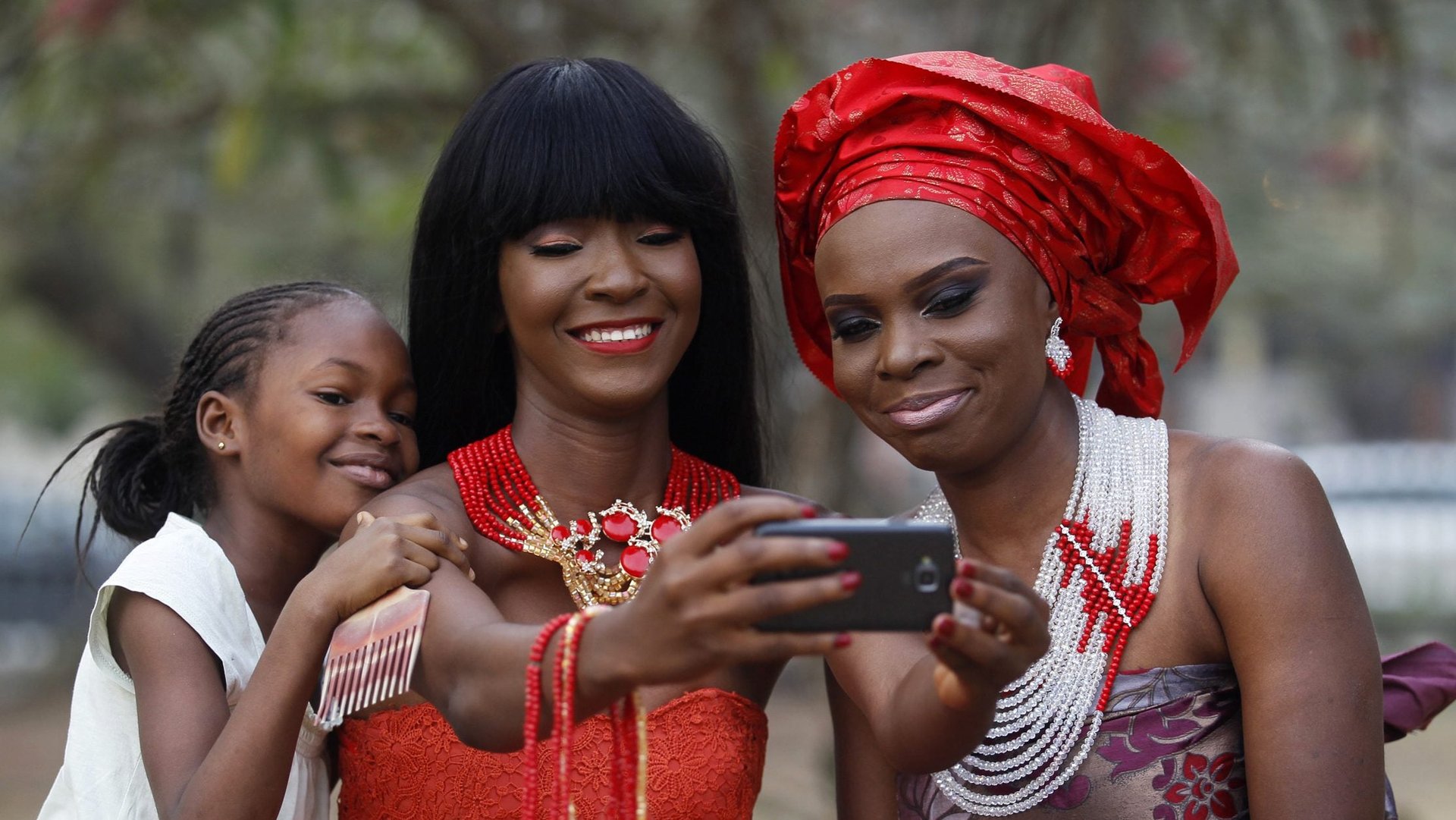The story of optimistic, happy Africans is more complex than we think
Africans are a jolly and optimistic bunch—and especially when it comes to perceptions about the future.


Africans are a jolly and optimistic bunch—and especially when it comes to perceptions about the future.
Over the last few years, attitude research from Africa has gradually documented a general mood of positivity among those surveyed. In 2014, the World Economic Forum noted that sub-Saharan Africa was the region most optimistic about tackling global challenges. In 2017, the World Happiness Report noted that despite facing a “happiness deficit,” Africans had “exceptional” global levels of optimism and resilience. And in early January, a new Pew Research survey showed that the continent had the highest global median of people having “particularly good days” in contrast to a “typical” or “bad day.”
This high share of upbeat Africans has especially come to fore as leaders and policymakers increasingly use happiness indicators to inform policy-making and measure social progress. And while, say, Europeans have remained skeptical about the future, Africans—bedeviled by bad infrastructure, terrorism, and poor living standards—have consistently shared a more positive outlook.
The most visible sign that Africans aren’t happy with their conditions is the high numbers of desperate migrants trekking across the Sahara and into Libya in order to reach Europe. These migrants continue to flow despite hearing stories of enslavement and detention by smugglers or militia groups who demand ransoms from their families.
So how come Africa always registers as the optimistic continent?
Given the country-specific and subjective nature of these feelings, it might be hard to explain this phenomenon. And while happiness is a universal experience, its meaning and manifestations differ globally, and more so in Africa, which has the largest number of nation-states located on a single continent.
Nonetheless, several global indices and reports give an insight into why such contentment exists across the continent. First among them is the idea that happiness is a collectivist project and not a personal one, and that communities have a mutual responsibility to take care of one another. In a world where happiness has become requisite, these networks, rooted in African humanism and Ubuntu, allow people the comfort to express whatever they are feeling at any given moment—and expect unconditional support.
Religion also plays a vital role in enforcing cheerfulness says Michael Kihara, an associate professor of psychology at the United States International University-Africa in Nairobi. This was evident in a Pew study of global religiosity, which found that a substantial number of Africans ranked religion as “very important” in their lives. Despite hardships, Kihara says believers talk about the concept of “joy” which could be confusing to researchers at times. “It says that you can be joyful even if you are not happy,” he said, adding, “It sounds like an oxymoron: how can you be joyful if you are not happy?”
Fill the glass
The idea that the future will be better despite the current hurdles has become less common in Europe and the US in recent years. And given the fact that we equate happiness with wealth, health and stronger national and economic institutions, this gloomy outlook is what partly fueled the election of Donald Trump and Brexit.
African optimism is born out of resilience too, with many developing emotional elasticity to deal with life’s vicissitudes. This viewpoint is captured by the words of the former president of the African Development Bank Donald Kaberuka, who said, “It’s not my job to debate whether the glass is half empty or half-full—figuring out how to fill the glass, that’s my task.” This humanistic school of psychology follows Abraham Maslow’s “hierarchy of needs”: those who have had their basic physiological and safety needs covered are the ones “actively” pursuing happiness.
Those down the ladder, Kihara says, are oblivious to these higher needs like self-esteem and being in a state of happiness. As such, those up the social order, go out of their way seeking happiness. “And so when it’s denied, it is so painful.”
A matter of language
As an abstract concept, language also plays a key role in how we define happiness. That means that humans can’t all agree on how to define happiness. When Wikipedia tried to collate a definition, it resulted in nearly 6,000 edits by over 3,000 users—including some bots. So while someone in Accra is having a “particularly good day,” that experience is completely different for a person in Madrid or New York or another in nearby rural Ghana.
Jacob Poushter, a senior researcher with Pew, says that for their annual Global Attitudes survey, questions are translated into dozens of languages which are assessed by independent verifiers to ensure the meaning is maintained. “The question itself does not include a definition of each term,” Poushter tells Quartz. “Rather, every respondent is free to interpret the question however they like.”
But while researchers use the triangulation process to verify and validate data, Kihara argues these subtle gradations of language could impact how people feel and express themselves.
Surveys about happiness in Africa typically include only a few African countries, limiting the scope of research to a few countries. Africans are also not all pleased about their current conditions, with positive ratings of overall progress differing across the continent.
However, what cannot be denied is the butterfly effect of happiness unfolding across the continent: buoyed by communities, religious belief, and the inherent confidence in a better tomorrow.